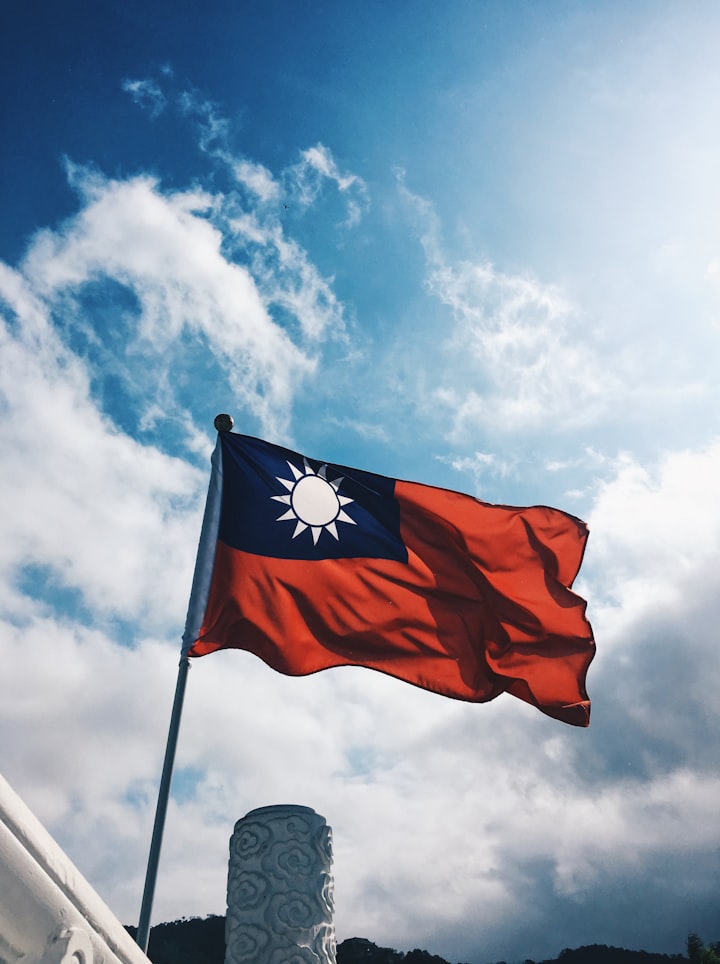Taiwanese Pop Culture: A Bridge or Barrier in Cross-Strait Relations?
Exploring Taiwanese Pop Culture's Influence on Cross-Strait Relations

Introduction:
Taiwanese pop culture, characterized by its vibrant music, films, and entertainment, has not only captured the hearts of audiences worldwide but also played a significant role in shaping the relationship between Taiwan and China. Taiwanese pop culture has long captivated audiences across Asia and beyond, serving as a cultural ambassador for the island nation. However, the influence of Taiwanese pop culture on the relationship between Taiwan and China is complex, reflecting the intertwined nature of politics, culture, and identity in cross-strait relations. While it serves as a bridge that fosters cultural exchange and understanding, it also becomes a source of tension due to political sensitivities and differing perspectives on identity. In this article, we explore the impact of Taiwanese pop culture on the dynamics between Taiwan and China, examining how it serves both as a bridge and a barrier in their relationship.
Cultural Exchange and Soft Power:
Taiwanese pop culture, encompassing music, film, television, and entertainment, has enjoyed widespread popularity in mainland China and other Chinese-speaking regions. Taiwanese artists, such as Jay Chou, Jolin Tsai, and F4, have amassed large fan bases in China, contributing to cultural exchange and mutual appreciation between the two sides. Additionally, Taiwanese dramas and variety shows are highly popular in China, showcasing Taiwan's vibrant entertainment industry and fostering cross-strait cultural connections.
Political Sensitivities and Cultural Identity:
Despite the popularity of Taiwanese pop culture in China, its influence is not without political sensitivities. Taiwan's unique cultural identity and political status as a self-governing democratic island have at times led to tensions with China. Instances of Taiwanese artists expressing support for Taiwan's sovereignty or participating in activities perceived as politically sensitive by Beijing have resulted in backlash from Chinese authorities, leading to bans on their performances or media appearances in China.
Economic Implications and Market Access:
The flow of Taiwanese pop culture into mainland China also has economic implications for both sides. China's vast market presents lucrative opportunities for Taiwanese artists and entertainment companies seeking to expand their reach and profitability. However, political tensions and regulatory hurdles can hinder market access for Taiwanese cultural products in China, affecting the revenue and growth prospects of Taiwan's entertainment industry.
Soft Power Diplomacy and Public Opinion:
Taiwanese pop culture serves as a form of soft power diplomacy, shaping perceptions and attitudes towards Taiwan among Chinese audiences. Positive portrayals of Taiwanese culture and society in media and entertainment can enhance Taiwan's image and foster goodwill among mainland Chinese, potentially influencing public opinion and attitudes towards cross-strait relations. Conversely, negative portrayals or controversies involving Taiwanese celebrities may fuel nationalist sentiments and exacerbate tensions between Taiwan and China.
Cultural Diplomacy and People-to-People Exchanges:
Despite political differences, cultural exchanges facilitated by Taiwanese pop culture play a crucial role in fostering people-to-people connections and promoting understanding between Taiwan and China. Concerts, festivals, and cultural events featuring Taiwanese artists provide opportunities for interaction and dialogue among audiences from both sides of the Taiwan Strait, transcending political barriers and promoting mutual appreciation of shared cultural heritage.
Conclusion:
Taiwanese pop culture occupies a complex and multifaceted role in the relationship between Taiwan and China. While it serves as a bridge connecting people and promoting cultural exchange, it is also subject to political sensitivities and economic considerations. As both sides navigate the intricate dynamics of cross-strait relations, the influence of Taiwanese pop culture continues to create perceptions, attitudes, and interactions between Taiwan and China, highlighting the intertwined nature of politics and culture in the region. As Taiwan and China navigate the intricate dynamics of cross-strait relations, the impact of Taiwanese pop culture remains profound, showcasing the enduring influence of culture in shaping the future of the Taiwan-China relationship.
About the Creator
East Asian Headlines
Welcome to East Asian Headlines. Join us as we dive deep into the intricate web of East Asian relations. We provide insightful analysis to illuminate the ever-evolving landscape of East Asian affairs (language, culture, politics, and more).






Comments
There are no comments for this story
Be the first to respond and start the conversation.